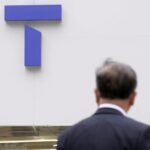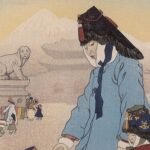(Courtesy of Hyundai Motor Group)
Hyundai Motor Group is accelerating its efforts to join hands with global tech companies to advance its future mobility technologies ranging from autonomous driving to unmanned aerial vehicles (UAMs) and connected cars.
According to sources in the automotive industry on Tuesday, Hyundai Autoever Corp. is seeking to cooperate with Google to upgrade its navigation map.
The company is an official provider of navigation systems for its sister companies Hyundai Motor Co. and Kia Corp.
Hyundai Autoever developed a high-definition map for hands-free Level 3 self-driving cars. It currently uses data provided by leading global location platform companies, HERE Technologies and TomTom, to develop navigation maps for Hyundai Motor and Kia cars sold across the world.
If Hyundai Autoever forges a partnership with Google, the Korean company is expected to use massive data collected by Google Maps, a move expected to create great synergy in upgrading its navigation maps.
The latest move is part of Hyundai Motor Group’s efforts to deepen ties with global tech giants to effectively manage and control huge data for the development of future mobility technology.
In November last year, Hyundai Motor signed an agreement to cooperate with Amazon to integrate the latter’s virtual assistant Alexa into the infotainment systems of its cars sold in the US starting in 2025.
Drivers will be able to ask Alexa to update transportation information to the latest data and command it to control media players and navigation systems in Hyundai cars with voice.
The Korean automotive group also signed a memorandum of understanding with Chinese big tech firm Baidu on connected car technologies in April.
Under the deal, Hyundai Motor and Kia Corp. will team up with Baidu to build a future mobility ecosystem covering connectivity, smart transportation systems and cloud computing in China.
MORE COLLABORATION WITH TECH FIRMS AHEAD
Hyundai Motor Group focuses on advancing its navigation system as accurate map information is one of the key elements determining autonomous driving quality.
In January, Hyundai Autoever formed a technology partnership with Mapbox, a US-based custom online map provider for websites and applications, to jointly develop technology that enables the integration of the 3D navigation map GPT technology, which is under development by Mapbox.
(Courtesy of Hyundai Motor Group)
Hyundai Motor Group also joined the Overture Maps Foundations, a collaborative effort to enable current and next-generation interoperable open map data. It is participated by Big Tech companies such as Amazon Web Services Inc., Meta Platform Inc. and Microsoft Corp.
The Korean auto giant, also the world’s third-largest automaker, expected open map data will help reduce its hefty reliance on Google and Apple map services and accelerate autonomous car development.
Like Hyundai Motor, other global finished automakers are actively seeking to team up with tech companies as it is more effective and efficient to use cloud services, AI and next-generation telecommunications networks developed by tech companies, instead of self-development, for their future mobility technologies.
In June last year, Mercedes-Benz tested ChatGPT in its intelligent vehicle production, while General Motors has been working with Microsoft to commercialize self-driving cars.
Tesla in April agreed with Baidu to collaborate on the development of maps and navigation systems to release the US electric vehicle giant’s driver assistance system, dubbed Full Self Driving (FSD), in China.
By Jung-Eun Shin
newyearis@hankyung.com
Sookyung Seo edited this article.















